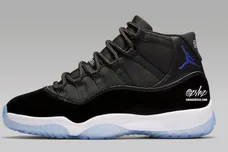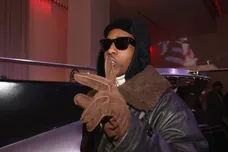Drake is in the midst of a comeback following his devastating defeat to Kendrick Lamar but unfortunately, his attempt has led to new hurdles. The single, “Blue Green Red,” part of the first 100 Gigs drop, was quietly pulled from streaming services this week. The 100 Gigs 3-pack on DSPs has replaced the song with “Circadian Rhythm.”
Per Dancehall Mag, the song was pulled due to allegations of copyright infringement of Tiger’s 1991 “When.” Producer Cleveland “Clevie” Brown spearheaded the claim against the Canadian rapper, claiming that the song illegally interpolates elements of the dancehall single. Below, we dove into the details surrounding why the single was removed from streaming services.
The Controversial Interpolation

The trouble began when "Blue Green Red" was shared last month as part of Drake's dump of unreleased content. The track was officially released on August 10, 2024, through OVO/Republic Records, a division of UMG Recordings. However, just days later, Clevie, who produced "When" as part of the iconic duo Steely & Clevie, claimed that Drake's song used the melody and lyrics from Tiger's hit without proper clearance. Clevie spoke with DancehallMag, revealing that his publishers, SONY/EMI, had reached out to discuss clearance. The problem is they did not provide the track for review. Despite the lack of approval, Drake's label went ahead and released the song.
"SONY/EMI [his publishers] called on Friday and said they were seeking clearance for When but they did not send the song. We can’t clear a song without hearing it. But Drake went ahead and leaked it before. The record company [UMG] blocked Drake’s release and then went ahead and released the song over the weekend without us giving any clearance. Because they did this before the fact, that can mean problems," he said. “They used the melody just in a section, and it was repeated twice. So this is a clear infringement." The line in question on Drake’s song comes in the post-chorus when he raps, “What the clock inna London? Yeah, Big Ben.” Tiger’s original lyrics are “Weh di clock inna London name? (Big Ben).”
Ongoing Legal Battles

What’s perhaps worse about this situation is that Drake has previously faced similar accusations by Steely & Clevie Productions. In the past, the duo has filed lawsuits against 160 artists and record labels, including Drake and UMG. Specifically, they claim the parties infringed on their 1989 riddim, “Fish Market,” which they allege was used on songs like “One Dance” and Bad Bunny’s “Mia,” which are part of 1,800 songs listed in the lawsuit.
Clevie explained that last-minute clearance requests are common in the music industry. “They often wait till the last minute to seek clearance. But we need to know the frequency of how the work is used so that we can evaluate what is reasonable in terms of copyright share,” he said.
Past Infringements & Industry Practices
Interestingly, Clevie also discovered that another popular song had used "When" without his knowledge. Usher and Nicki Minaj’s 2014 track "She Came II Give It II You" featured elements of the song. Still, no clearance had been obtained at the time. Clevie pointed out that there is a three-year statute of limitations on songs. However, there is also a non-discovery rule that allows legal action if it can be proven that the infringement was not known within that time frame.
This situation highlights the complexities of clearing samples and publishing splits – a prevalent issue in the music industry. Clevie elaborated on how copyright infringement affects not just the author of the lyrics but also the composition and authorship of the music itself. “When they infringe on a song, it affects the composition and authorship of the song as it relates to the share of the publishing rights,” he explained.
The Legacy Of Tiger’s "When"
Tiger is a legendary dancehall figure whose distinctive growl and energetic delivery helped him dominate the 1980s. Songs like "Wanga Gut," "Puppy Love," and "Ram Dancehall." His collaboration with Steely & Clevie on "When" in 1991 marked a significant comeback that subsequently led leading to his first album on a major American label. Claws Of The Cat, was released through Sony Music’s Chaos subsidiary.
The single undoubtedly has had an understated impact globally but according to Clevie, the song was born from a casual conversation that he had with Tiger. “We wrote ‘When’ in half an hour, we did the riddim, and Tiger was searching songs when someone called him about a show, and he kept asking them ‘when?’,” Clevie recalled. The producer explained that the organic process behind the song has provided an enduring appeal. Evidently, they created a timeless record that has clearly influenced some of the biggest musicians.
The Future Of "Blue Green Red"
As the legal drama unfolds, the future of "Blue Green Red" remains uncertain. It seems likely that it wasn’t intended to hit streaming services ever, considering it was released for free on 100gigs.org. Unfortunately, “Blue Green Red” is facing similar restrictions to “S.O.D.,” a collaboration with Lil Yachty that debuted on Kai Cenat’s stream. The problem with the latter is that the artist they sampled, Mr_Hotspot, wanted them to create a clean version of the record for an official release, Billboard reports. Though Drake later re-released the song sans Yachty through the 100gigs.org website, it still hasn’t hit streamers yet. DJ Akademiks, however, stated that there is a music video for the song.
For now, it appears that only a select few records from the content dump will make their way onto DSPs. At least, the ones that have gone through the proper channels to gain clearance. However, we could imagine that something could be worked out in the future. Hopefully, it will allow these records to return to platforms like Apple Music and Spotify.









